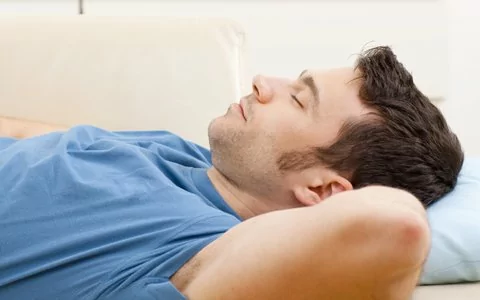
Obstructive sleep disorder (OSA) is a potentially serious sleep disorder in which a child’s breathing stops and starts again during sleep. Childhood OSA is most common in children between the ages of 2 and 6 but can occur at any age.
There are different treatments for OSA. Some of the most used devices to help are continuous positive airway pressure (CPAP) machines, mouthpieces, and customized pillows. Dentofacial orthopedics is another option for early treatment and even prevention of OSA. This orthopedics can open the air passage by 10mm or more by creating a face profile in the best position, which is a method to increase the air space. Treatment can be started as early as 2 years of age and can help your child achieve more sleep by reducing breathing, swallowing, and sleeping problems.
Other oral treatments include mandibular replacement devices and tongue retainers. These devices open your airway by bringing your lower jaw forward during sleep. They are made of acrylic and fit inside your mouth like a sports mouth guard. Others can fit around your head and chin to adjust the position of your chin.
Supportive devices are only effective for mild or chronic apnea. There are also many disturbing effects that can be associated with the use of braces, including pain, increased fluid retention, nausea, and damage or permanent changes in the condition of the jaw, teeth, and teeth.
It is very important to get fitted by a dentist specializing in sleep apnea. Also, see your dentist on a regular basis for any dental problems that may occur, and check with your sleep specialist to see if you are a proper candidate for OSA.
It is very important to be fitted by a dentist who specializes in sleep apnea. Also, see your dentist regularly for any dental issues that may arise and check with your sleep specialist to see if you are a good OSA advocate.
Sleep apnea even leads to excessive daytime sleepiness because each time your brain must “wake up” to tell your body to continue breathing, it’s not spending enough time doing all the other functions that are necessary for quality sleep. Being tired all day can cause poor performance at work or school, memory and other cognitive troubles, depression, and even accidents while driving or while at work.
Sleep apnea can cause even more sleep during the day because every time your brain wakes up to tell your body to keep breathing, it doesn’t spend enough time doing other things. he wants to make sleep better. Being tired all day can lead to poor performance at work or school, memory problems and other disabilities, depression, and even accidents while driving or working.
The severity of sleep apnea can be determined by the number of apnea events (stopped breathing):
- Mild OSA -The victim experiences 5-14 respiratory arrests in an hour.
- Moderate OSA – The victim experiences 15 to 30 respiratory pausesin an hour.
- Severe OSA -The victim experiences 30 or more stops of breathing in one
Dr. Montz, Dr. Maher, or Dr. Dunwody at Houston Sleep Solutions South will be able to help you determine if sleep apnea treatment is right for you. Contact us now.
Locations (Tap to open in Google Maps):
2443 S Galveston Ave
Pearland, Texas 77581
Pearland Phone: 281-485-48291769 S. Friendswood Dr. Ste 107
Friendswood, TX 77546
Friendswood Phone: 281-482-1275
